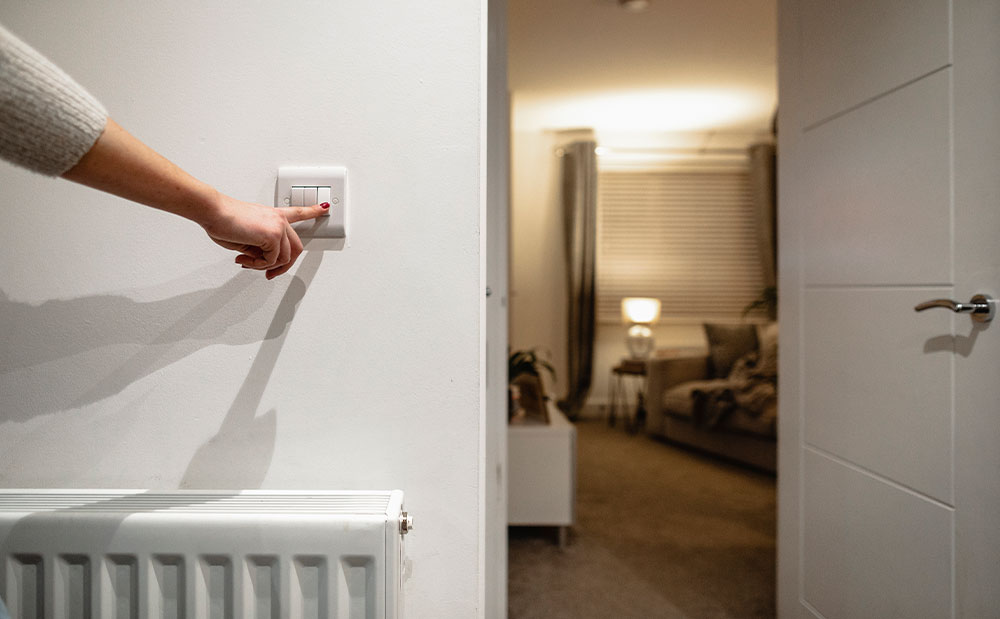
Night owls beware…all that exposure to bright lights during the night might just put you at greater risk for diabetes, recent research suggests.
This might sound like a stretch at first, but the quality of your sleep is heavily influenced by light exposure, and sleep quality influences so many factors of our physical and mental health.
We’ve heard time and time again that a good night’s sleep is essential for our overall well-being and it’s no different when it comes to diabetes health. Poor sleep can influence other body health factors that contribute to developing diabetes.
A recent study at Flinders University in Australia found that those who had greater exposure to light at night were more likely to develop type-2 diabetes later in life. (1)
Turns out that despite what Maggie Rogers says, you might not want to “leave the light on” at night after all.
Let’s take a closer look at the study’s findings.
Lights Related to Diabetes? The Study’s Findings
Researchers studied over 85,000 participants who did not have diabetes at the start of the study. For one week, the participants wore light-sensor bracelets that measured their light exposure levels all day and night.
The research team then tracked the study’s participants for the next decade to see if they developed type-2 diabetes.
“We found that exposure to brighter light at night was associated with a higher risk of developing type 2 diabetes,” said Andrew Phillips, senior author of the study and associate professor of medicine and public health at Flinders University, in a news release.
The study specifically focused on levels of light exposure between the hours of 12:30 a.m. and 6:30 a.m. to better understand how late-night lights impact sleep and diabetes.
The researchers also accounted for other factors like lifestyle habits, shift work, diet, and mental health that could potentially influence a diabetes diagnosis to determine that there is indeed a direct correlation between light exposure and diabetes risk.
So how does light exposure relate to diabetes? It all comes back to the quality of sleep we’re getting.
How Does Diabetes Relates to Light Exposure and Sleep?
There is long-standing research to support that the quality of sleep we get each night is closely linked to the risk of developing diabetes.
Light exposure is a key factor that influences our sleep quality since bright lights at night can throw off our body’s circadian rhythm, the force that tells our bodies when to wake up and when we should fall asleep at night.
When we stay up at night with all the lights on, it confuses our body’s natural rhythm.
When our circadian rhythm is disrupted, our bodies have a harder time regulating our blood sugar levels, which is what can eventually lead to type-2 diabetes.
“Changes in insulin secretion and glucose metabolism caused by disrupted circadian rhythms affect the body’s ability to regulate blood sugar levels, which can ultimately lead to the development of type 2 diabetes,” added Phillips.
Not only that, but poor sleep from light exposure can also influence changes in our diet that contribute to other diabetes factors.
“Poor sleep and/or lack of sleep makes you have more insulin resistance. You also have more hunger and satiety signals, while also craving more fatty and sugary foods for quick energy,” says Dr. Shelby Harris, Sleepopolis’ Director of Sleep Health.
Limiting Your Light Exposure for Better Sleep
Looking to avoid the increased diabetes risk? Researchers from this study say that the first thing you can do is limit your exposure to bright lights at night.
Ditch the harsh overhead light or “big light” (as Gen Z calls it) and opt for softer lighting options in your home.
“Our findings suggest that reducing your light exposure at night and maintaining a dark environment may be an easy and cheap way to prevent or delay the development of diabetes,” said Phillips in a news release.
However, the most effective option might just mean going to bed earlier… but we all know that’s easier said than done when it comes to our busy lives.
So turn off that bright overhead light and opt for softer, more relaxing lights before bed at night to support your sleep quality and overall health.
Sources
Desk N. Fight the late-night bright light. News. Published June 25, 2024. Accessed June 27, 2024. https://news.flinders.edu.au/blog/2024/06/26/fight-the-late-night-bright-light/
